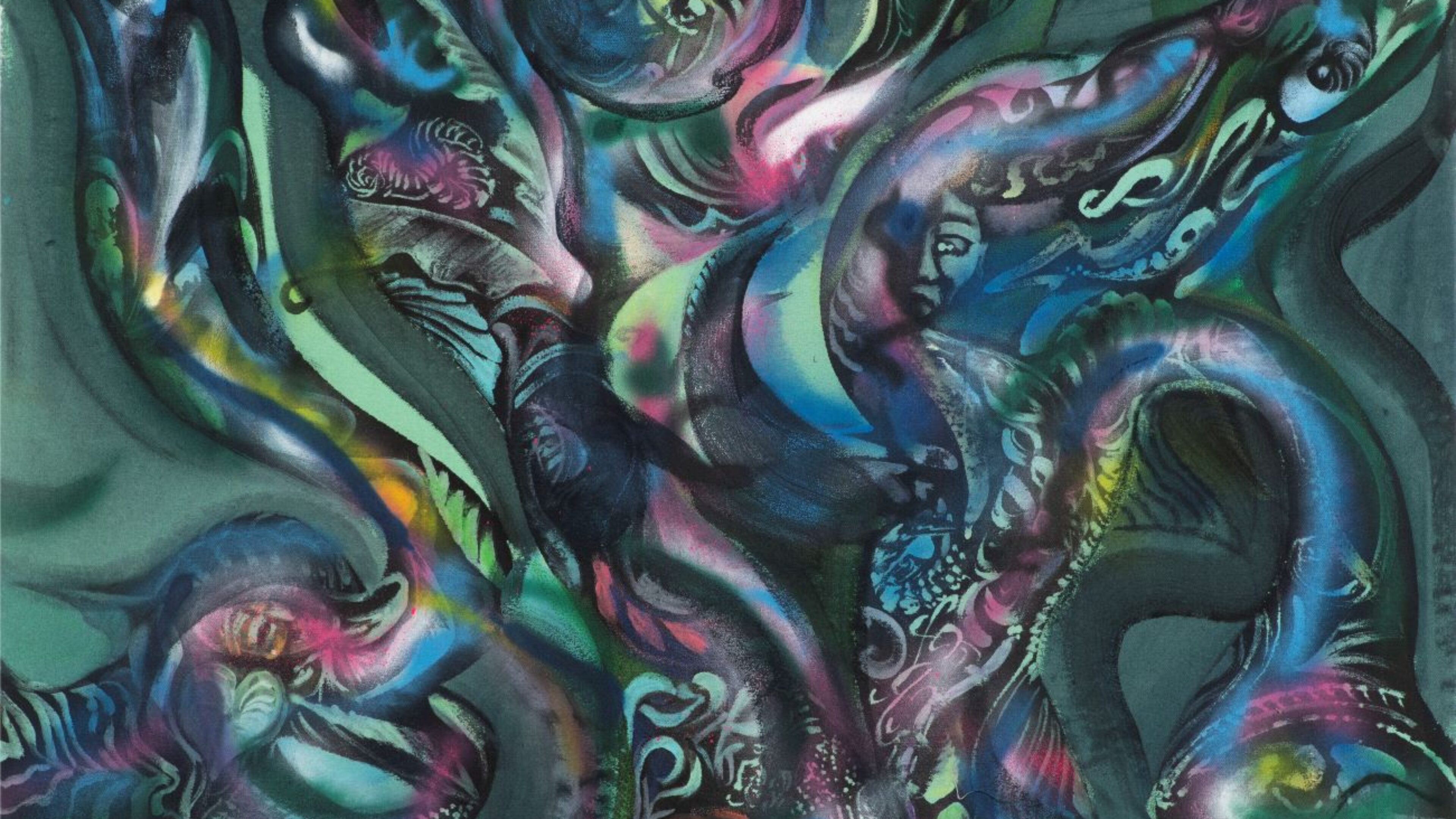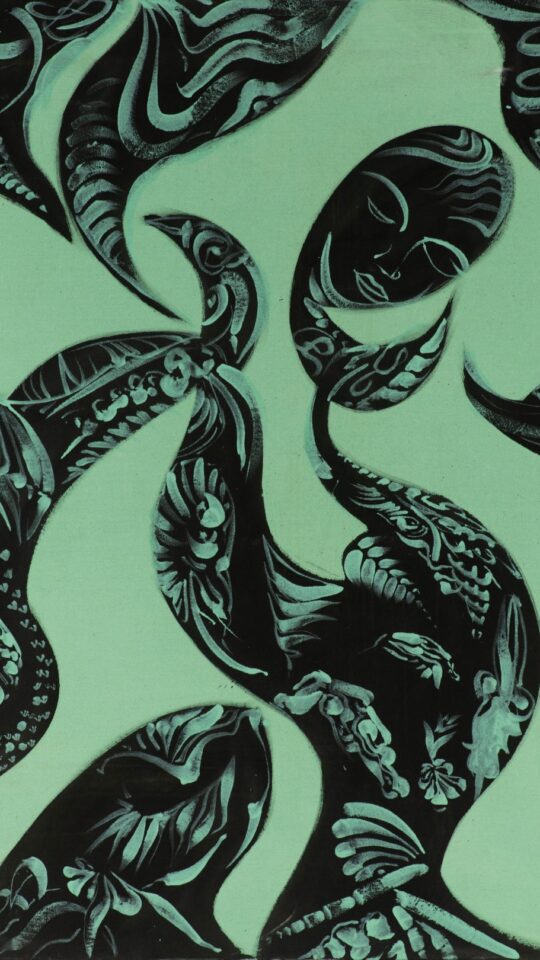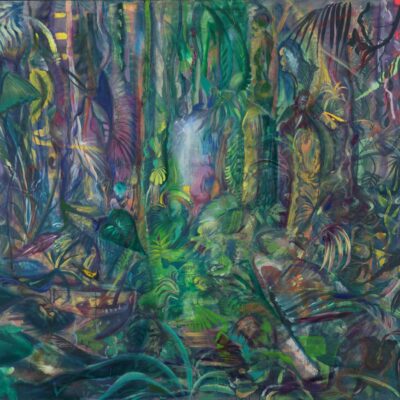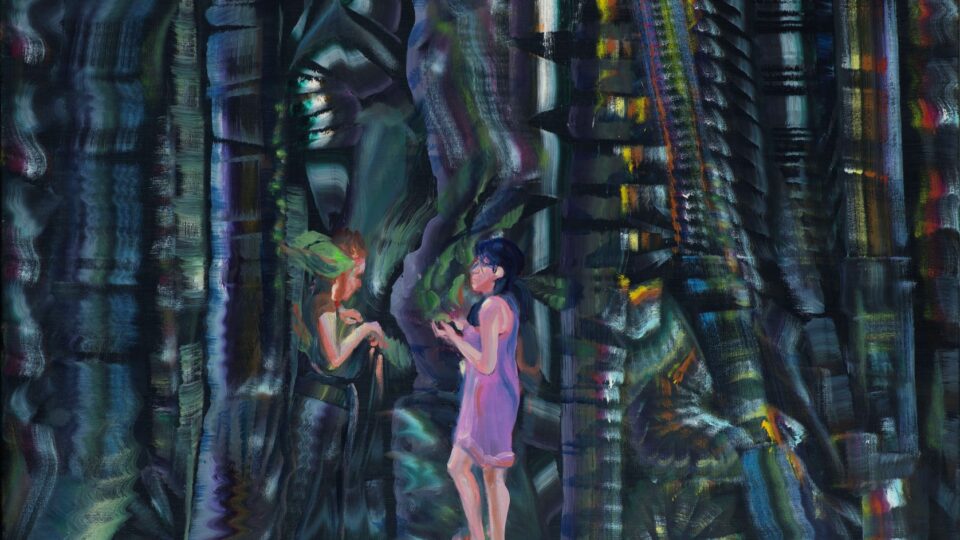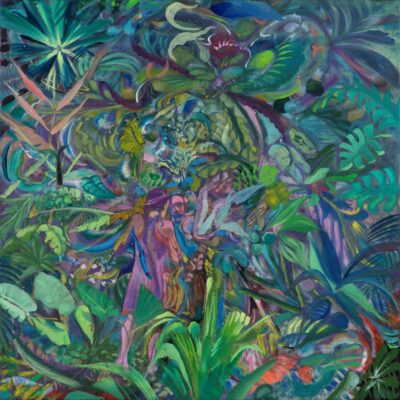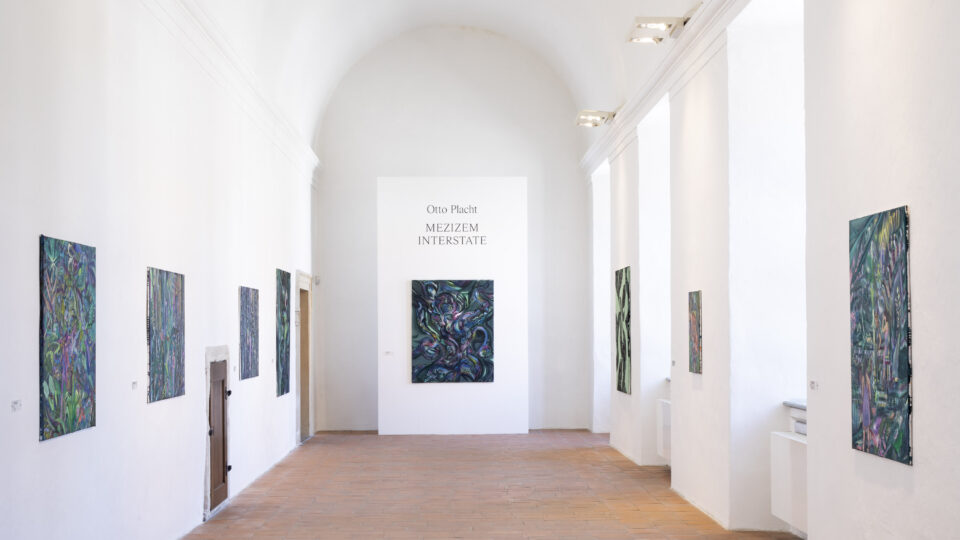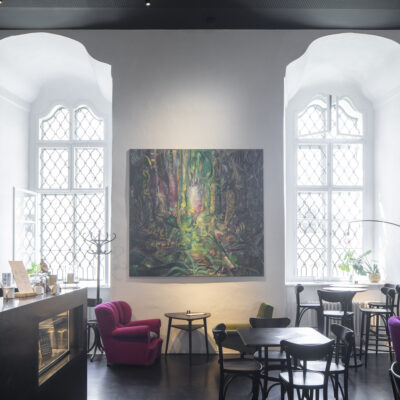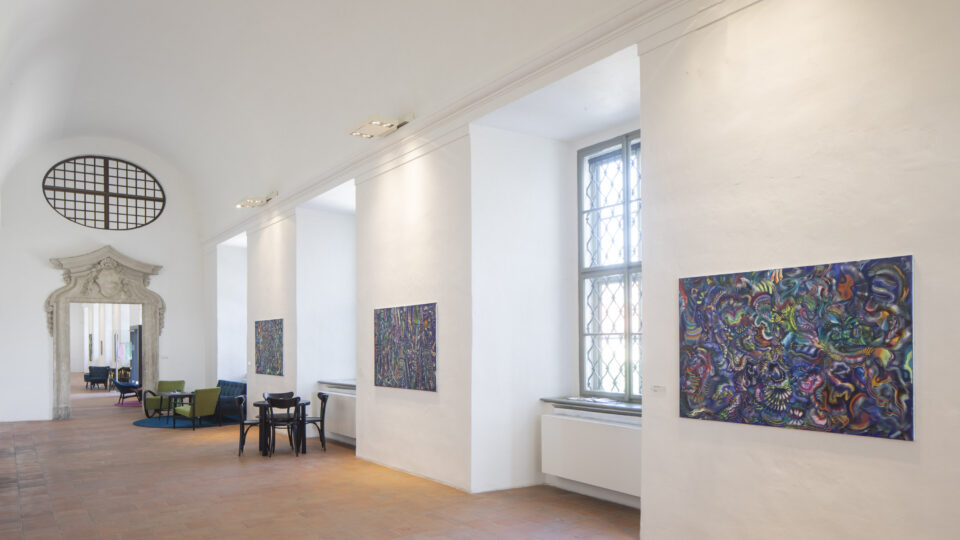The painter Otto Placht has a special place on the Czech art scene. For nearly three decades, his art and life have been split between two distant places of our planet: his first home in Prague in the Czech Republic and his second home on the shores of Lake Yarinacocha in Peru. The title of the exhibition INTERSTATE reflects this existence between two places and states of existence. ‘Interstate’ is also a description of Placht’s mental space, where science, art, magic, the wilderness and spirituality are all at home. It is an inner asylum, an enduring state of mind in which these often seemingly incompatible and contradictory elements meet and influence one another, and it is their clashing and intertwining that form the unique world of Placht’s imagination.
Over the years, Placht’s encounter with the nature of the Amazon, with the vegetation of the jungle, with the local Indians and their spiritual world, with ayahuasca – a ‘food of the gods’ – has influenced his relationship to reality and his view of art and has opened his ‘gates of perception’ to a different visuality and a different way understanding of the world. Otto Placht paints scenes in which – just as in the lives of the Indians – reality blends naturally with myth and visions. In a place where these things exist together and not separately, where they are experienced as real, his paintings represent an attempt at capturing the essence of this ‘extraordinary ordinariness’. They often feel kaleidoscopic, as if they were disintegrating into mutually interlaced, ornamental surfaces and fields. They pull the viewer into an imaginary space without borders or horizon, into a microcosm and macrocosm in which myth and reality are one. Echoes of rituals and of dynamic, colourful ayahuasca visions form a counterpoint to Placht’s ‘portraits’ of the ancient rain forest and virgin landscape with the surface of Lake Yarinacocha as a tranquil horizon.
The privilege of having two homes is something also enjoyed by the painter’s children as they seek their own path towards the spiritual and natural richness of their second home and to their roots in the local Shipibo tribe. In a series of painting done during the lockdown, Placht depicts his daughter Jůlie as a pilgrim in her own personal garden of initiation. Seemingly everyday events – a journey into the jungle and an encounter with the plantas maestras (plant-teachers), a walk through the market or a conversation with a shaman – can be transformed into a journey not unlike the one undertaken by Alice beyond the looking-glass.
With Otto Placht, too, we can speak of the roots he has set down after all these years, which always bring him back whenever he leaves. For him, all departures are arrivals as well. On this subject, Placht himself says that ‘INTERSTATE exists on the return journey from the esoteric exoticism of the Peruvian Amazon… It’s an original paradise without a past or history, for it exists before its creation, in the memories of the collective consciousness. In our reality, which tends to be seen as the opposite of dreaming, being here would appear to be just an escape from the laws of civilisation. But it’s also a return to its original meaning.’
